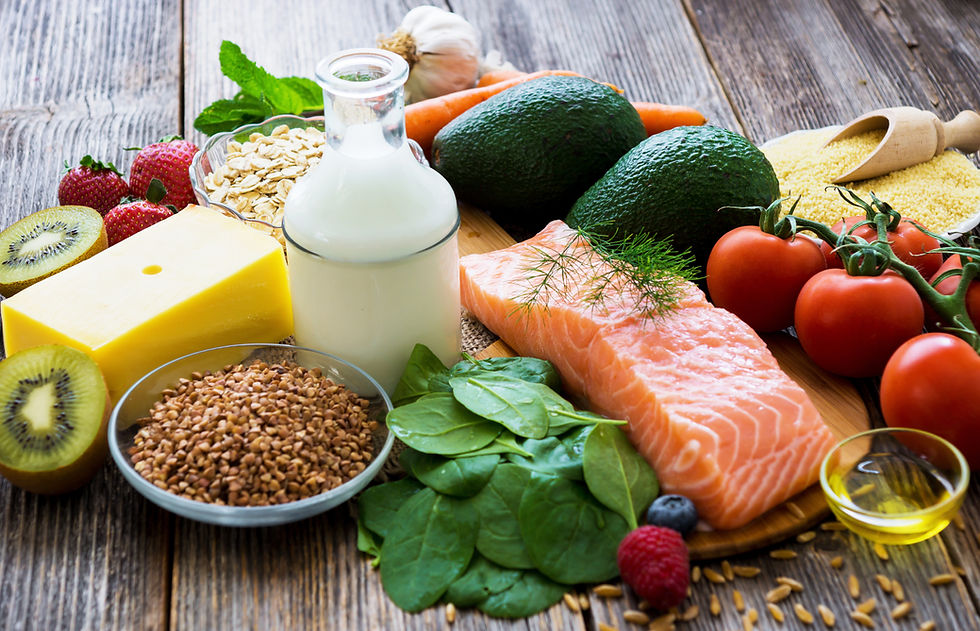6 Nutrition Tips for Volleyball Performance
- braedonjon
- Feb 22, 2024
- 2 min read
Volleyball is a dynamic sport that demands agility, strength, and endurance. To perform at your best on the court, it's crucial to fuel your body with the right nutrients. In this blog post, we'll explore the best foods and diets for volleyball players to enhance performance and support optimal recovery.

Carbohydrates:
The Energy Powerhouse Carbohydrates are the primary source of energy for athletes, and volleyball players are no exception. Complex carbohydrates like whole grains, brown rice, quinoa, and sweet potatoes provide a steady release of energy, helping players sustain their performance throughout a match. Incorporating these into pre-game meals ensures a well-fueled body.
Protein for Muscle Repair and Growth:
Volleyball is a physically demanding sport that involves constant jumping, diving, and rapid movements. Protein plays a crucial role in muscle repair and growth. Lean sources such as chicken, turkey, fish, eggs, and plant-based options like tofu and legumes should be included in every volleyball player's diet. Consuming protein-rich snacks post-game aids in recovery and helps rebuild damaged muscle tissues.
Hydration:
The Key to Performance Proper hydration is often overlooked but is essential for maintaining peak performance. Volleyball players must stay well-hydrated before, during, and after matches. Water is the best choice, but for intense training sessions or matches lasting longer than an hour, sports drinks containing electrolytes can help replenish lost fluids and maintain electrolyte balance.
Healthy Fats for Endurance:
Including healthy fats in the diet is crucial for sustaining energy levels during long and intense volleyball matches. Avocados, nuts, seeds, and olive oil are excellent sources of healthy fats. These fats not only provide lasting energy but also support joint health, an essential aspect of a volleyball player's overall well-being.
Timing is Everything:
Pre-Game and Post-Game Nutrition The timing of meals is as important as the content. A pre-game meal rich in carbohydrates and moderate in protein should be consumed 2-3 hours before the match. Quick, easily digestible snacks, such as a banana with a small amount of peanut butter, can be consumed 30-60 minutes before the game. Post-game, focus on replenishing glycogen stores with a combination of carbohydrates and protein to aid recovery.
The Importance of Vitamins and Minerals:
Volleyball players need to ensure they get a variety of vitamins and minerals to support overall health and performance. Dark leafy greens, colorful vegetables, and fruits provide essential vitamins and antioxidants. Calcium-rich foods like dairy products, tofu, and fortified plant-based milk are crucial for maintaining strong bones, which is vital for the jumping and landing aspects of volleyball.
Optimizing performance in volleyball goes beyond rigorous training sessions; it involves mindful nutrition. By incorporating a well-balanced diet rich in carbohydrates, proteins, healthy fats, and essential vitamins and minerals, volleyball players can enhance their performance, improve recovery, and ultimately, dominate the court. Remember, each player is unique, so it's essential to listen to your body and make adjustments to your diet based on individual needs and preferences. Fuel your body right, and watch your volleyball game reach new heights!




Game slot di kabar4d selalu seru dan gacor.